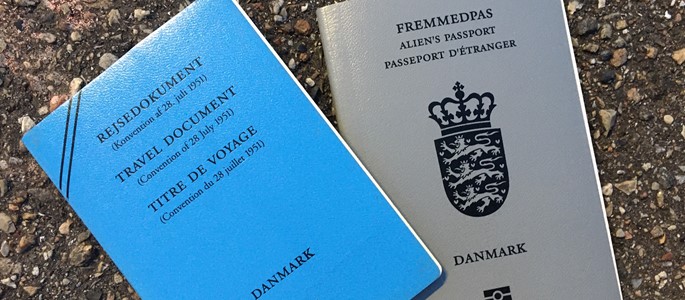Statelessness in Denmark: 10 facts with recommendations from UNHCR
Stateless refugees and their children should have easier access to Danish nationality according to the UN Refugee Agency in the Nordic and Baltic Countries
Refugees Welcome has consistently and in many contexts criticized how the strict and even discriminating criteria for obtaining Danish citizenship are especially problematic for refugees – both stateless and not stateless – as none of the two groups have a real home country. We are happy with the recommendations from UNHCR which we fully support. Links to more articles about the subject can be found at the bottom of this article.
FACTS AND RECOMMENDATIONS FOR ACTION
1. Statelessness in Denmark mainly occurs in the migratory context. By the end of 2022, Denmark had a stateless population of 8,587 individuals (of which 564 individuals were born in Denmark), many of whom were born in Syria, Lebanon, and Bhutan.
2. Danish legislation does not currently contain a definition of a stateless person. UNHCR recommends that Denmark incorporate, within its national legislation, the binding definition of a stateless person as set out in Article 1 of the 1954 Convention relating to the Status of Stateless Persons, in order to strengthen the interpretation and application of the definition in law and in practice.
3. Statelessness can be established through various administrative procedures in Denmark. However, there is no centralized procedure, solely dedicated to undertaking statelessness determination. UNHCR recommends that Denmark develop the existing statelessness registration procedure into a dedicated statelessness determination procedure that identifies stateless persons on Danish territory and protects applicants against expulsion pending the outcome of the procedure.
4. The Danish Aliens Act does not contain any provisions regarding the core set of rights, enshrined in the 1954 Convention and other international human rights instruments, to which lawfully staying stateless persons are entitled. UNHCR recommends that Denmark introduce these core rights into legislation, both for applicants and persons recognized as stateless.
5. Stateless persons in Denmark are not able to regularize their immigration status solely based on being stateless. UNHCR makes the following recommendation to Denmark, that persons recognized as stateless be granted a specific residence permit with a related set of core rights. At least, the general rule that a foreigner must wait 18 months before he or she is deemed unable to return to another country prior to qualifying for a residence permit on exceptional grounds, should not apply to stateless persons, as they, owing to their statelessness, have no country to return to in a durable manner.
6. Since 2014, Denmark has granted Danish nationality to 1,831 stateless people residing in the country. In light of the strict general criteria for acquiring Danish citizenship, UNHCR recommends that Denmark make provision for a substantial facilitation of naturalization for stateless persons born outside Denmark. An exemption from the language and citizen tests especially for older stateless persons would be particularly important.
7. By the end of 2022, there were 2,138 children and young adults (0 - 19 years) without nationality in Denmark (of which 502 were born in Denmark). UNHCR recommends that Denmark, as the best and safest way of avoiding childhood statelessness, automatically grant nationality to all children born stateless in Denmark. This would be in line with the two Statelessness Conventions and the Convention on the Rights of the Child. UNHCR also recommends undertaking an analysis of the circumstances behind the high number of children with no nationality in Denmark and to change the requirement of “lawful residence” to “habitual residence” for children applying for nationality.
8. Children born in Denmark to mothers who are nationals of one of the 25 countries that currently do not allow women to pass on their nationality to their children, and whose fathers are unknown, are sometimes registered as having the same nationality as their mothers. As they may not be able to acquire their mother’s nationality, UNHCR recommends that such children go through procedures for the identification of statelessness, and to build the capacity of civil registry officials.
9. In 2019, Denmark submitted two pledges for the High-Level Segment on Statelessness, showing its commitment to continue its efforts to avoid statelessness. UNHCR recommends and encourages Denmark to fulfil its pledges by 2024, which currently are at different stages of implementation.
10. Denmark acceded to the 1954 Convention in 1956 with reservations to Article 24(1), Article 24(3) and Article 31. UNHCR recommends that Denmark withdraw these reservations to ensure full compliance with the 1954 Convention.
Read more:
Stateless quota refugees from Bhutan cannot obtain Danish citizenship
Requirements to obtain citizenship undermines democracy
Ambitious refugees fight in vain for permanent residence
As a member, you support
our fight for refugee rights


